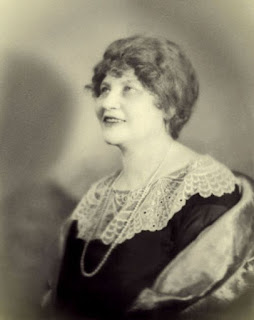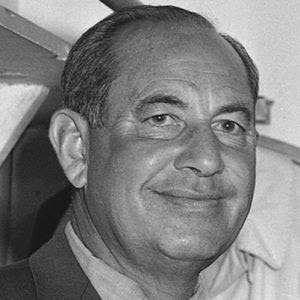On January 18, 1885 she married Samuel Marx (né Simon Marrix), although they later pushed back the date of their marriage to 1884 when they took in her sister Hänne (Hannah)'s illegitimate daughter Pauline, who was born in January of 1885, and began passing her off as their own. Many people believe that due to the death of her firstborn child, Manfred, at seven months of age in July of 1886, she pushed her five living sons into show business and took a very large role in doing so. To help her sons along when they were just getting started in vaudeville, she moved the family to Chicago in 1909 to be closer to a number of important vaudeville houses, and also because she felt she could do a better job at organizing their careers in this central hub city, as opposed to in the vaudeville scene back on the East Coast.
Shortly after moving to Chicago, she also began billing herself as Minnie Palmer, which happened to be the same name as a woman who had also been involved in the entertainment industry. The original Minnie Palmer was out of the country at the time Minnie Marx began using her name. Seeing as how she was still living and eventually returned to the United States and successfully restarted her performing career, this caused understandable confusion and mix-ups in the press. However, whether or not she adopted this new name because she knew it already had a famous bearer, she didn't mind people assuming they were one and the same, since it meant good press for her sons. In Chicago she put her all into hobnobbing with booking agents for vaudeville houses, promoting her sons' act, and for a time was also in their act, along with her sister Hannah. She also became the only female producer in Chicago at the time, producing not only her sons but a number of other acts as well. Some of her acts were so successful they were booked on tours that took them not only around Chicago but also to more distant places in the United States. She became very good at working the press to her and her acts' advantage. After the United States entered World War I, she found out that farmers were exempted from the draft and subsequently bought a farm in a then-undeveloped region of Illinois so that her sons could be kept at home.
However, her second-youngest son, Gummo, did end up joining the Army eleven days before the Armistice, at which time she put her youngest son Zeppo into the act in his place. All of her hard work eventually paid off when her sons graduated from being popular vaudeville stars to big stars playing on the more respectable stage of Broadway. Before the opening night of their first Broadway show, 'I'll Say She Is,' in 1924, she broke her leg while being fitted for a gown and was carried into the theatre, where she was placed in a box seat in the front row. This moment was described as her personal victory, a victory that was even greater when her sons' first film, 'The Cocoanuts,' had a very successful premiere and subsequent run starting in May of 1929. On September 13 of that year, she had a seizure and slumped over while she and her husband were being driven home from the family Friday night Sabbath dinner at the home of Zeppo and his wife Marion. The chauffeur was ordered to turn around and drive back to the house, where the other members of the family were still gathered. Early the next morning, with her nearest and dearest around her, she died of a stroke at the age of sixty-four...



























